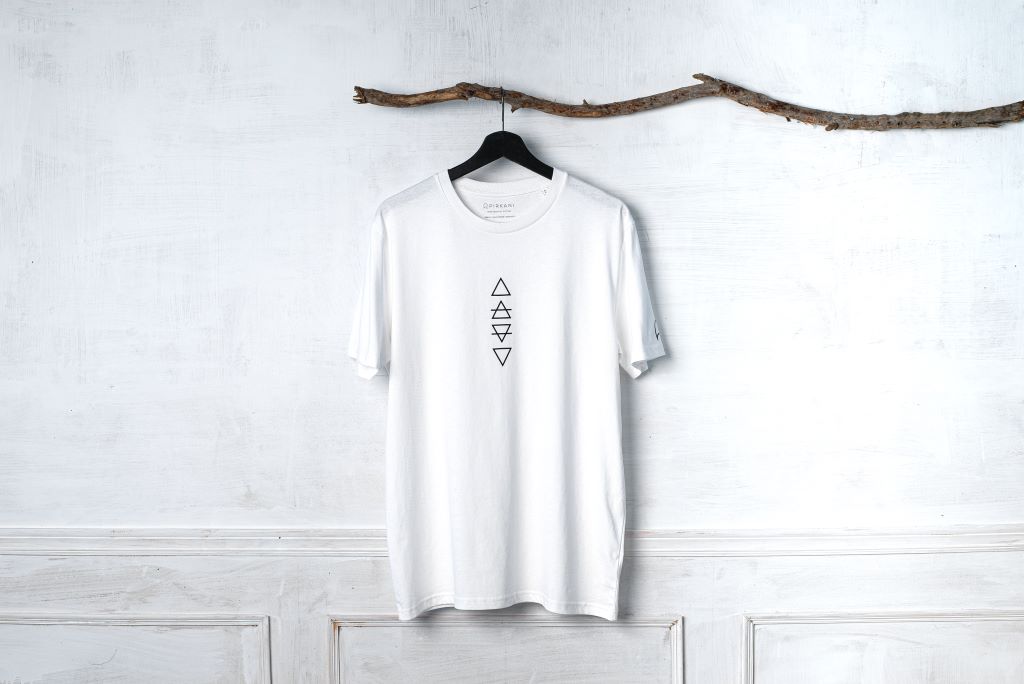The trend of sustainable fashion: why is it becoming so popular with millennial and gen Z shoppers?

What is the environmental impact of the clothes you wear? This is a question more, and more of us have been asking ourselves.
Sustainable fashion has massively risen in popularity over the last decade, as we are choosing to buy sustainable clothing trends rather than cheap fast fashion garments. What’s behind this rise of sustainable fashion? And what role do the youngest generations play in it?
A turn away from fast fashion
Through the 90s and early 2000s, a new trend took over the fashion industry – the fast fashion business concept. Fast fashion drove the prices of clothing down by outsourcing labour to developing countries and cutting costs in the supply chain by going for ecologically harmful fabrics.
Fast fashion gained the ability to react quickly to trends and making them very affordable for the mass population. As collections were rotated quickly – some brands introduced as many as 52 seasons per year and we were pressured to buy clothing frequently because every time we visited the store, there was completely new stock.
This immediate consumption, wherein consumers bought a lot of garments with a short lifespan only to throw them away shortly and replace them with new fast-fashion clothing, led to the popularity of fast-fashion – and the beginning of its eventual downfall.
More organisations and individuals became curious about why fast fashion garments are so cheap, uncovering many an ugly truth about what goes on in the background of fast fashion. From worker right abuses, through toxic waste released from factories to deceitful sustainability claims, more and more secrets behind fast fashion’s low prices were exposed, and suddenly, the number on the price tag didn’t seem so appealing anymore.
The appeal of sustainable clothing trends
After losing all illusions about fast fashion, we naturally searched for a solution that would help us decrease our impact on the environment and live an eco-friendlier lifestyle. Sustainable fashion sprouted and gained popularity. Eco-friendly brands began improving the worker conditions, scratched toxic chemicals from its supply chains to favour more natural and renewable alternatives, and in many cases brought the production of fashion back to the west.
Sustainable fashion brands not only improved their environmental and social impact; they also made their supply chains much more transparent than fast fashion ever did. This helped them earn the trust of masses and suddenly, the unclear and secretive origins of fast fashion garments, often only represented by a ‘made in Bangladesh’ tag, became obsolete.
Sustainable fashion also helped us understand that the cost of a piece of clothing goes far beyond the number on the price tag. We started to care more about how long a garment will last and the cost per wear.
In its essence, sustainable fashion promised to solve every issue we found unsettling about the fast-fashion production chain. Thanks to these changes, sustainable clothing trends took off so much that they sparked a wave of greenwashing (untruthful claims about environmental sustainability) amongst fast fashion companies, who were hoping to take a bite of the increasingly environmentally-conscious market.
Sustainability matters to more people than ever before
Sustainable fashion trends won’t have become so popular if it hasn’t been for the shift towards sustainability in our society. It wasn’t just fast fashion – we began to discover the environmental impact of other industries too. We realised how much they were adding to our carbon footprint, waste production and other environmental issues.
Humankind is also finding out more about the impact of its past actions on the planet with advanced scientific research and statistical analysis. In light of the new knowledge, we want to avoid making similar mistakes in the future. Because of this, the average person of the 21st century is more eco-conscious than anyone before, and more of us are willing to pay extra for eco-friendly products.
Millennials and Gen-Z
The youngest generations are always the first to call for a change – but with the case of environmental sustainability, the stakes are even higher. Millennials and Gen-Z can see that ecological threats such as climate change or plastic pollution will affect their future. Unless these two generations act sustainably, they and their future generations will likely grow old in a world where much of the natural beauty has been destroyed.
Although their lower budget compared to their parents and grandparents, millennials and gen-Z are willing to drop the extra money on a sustainable purchase because they will likely see their purchasing decisions reflect on the future. They know the value of spending more on sustainable fashion trends rather than fast fashion, which will last them for a long time.
Additionally, we can’t discuss this topic without touching upon the generation gap. Millennials and Gen-Z members have grown up in a world where sustainability is becoming increasingly essential or was already born into it. Taking steps towards more sustainable solutions comes naturally to them and has become a crucial part of their lives since a young age.
On the other hand, older generations have lived much of their life without considering their environmental impact, simply because the topic wasn’t regarded as necessary in society for most of their life. It doesn’t mean that people born before the year 1980 don’t care about the environment; they were just not raised to do so.
No matter if you’re a millennial or generation Z member or not, the purchasing decisions you make when it comes to the clothing you buy are of a great value. Every garment you buy has the power to change the world, one at a time.
Think Sustainable.
At Pirkani Apparel, we believe that our impact today will have crucial effects on our future generations. We do our best to protect our planet Earth, preserve and conserve its natural resources and the fragile eco-system. At the same time, we deliver high-quality, sustainable apparel that our consumers love and wear with pride. We are committed to conscious clothing and fair-trade practices that support every member in our eco-system, from farmers to consumers. While we do it, although we may be taking plants from Mother Nature in the making of our apparel, we ensure our carbon impact is negative, and we give back just as much by planting trees for every piece of clothing that we produce.






Hi there Pirkani team! I just wanted to say how much I enjoyed reading your article on the trend of sustainable fashion. It’s great to see that more and more millennials and Gen Z shoppers are becoming conscious of the impact of their fashion choices and are opting for sustainable options.
As a millennial myself, I can definitely relate to the desire to make more ethical and sustainable fashion choices. It’s not just about the impact on the environment, but also the impact on the workers who make the clothes. I think many people my age are becoming more aware of the issues surrounding fast fashion and are looking for alternatives.
I also appreciate that your article acknowledges that sustainable fashion can be more expensive than fast fashion. However, I think it’s important to remember that investing in quality, sustainable pieces can actually save money in the long run. Clothes that are made to last will not need to be replaced as frequently, which can ultimately save money and reduce waste.
Overall, I think it’s great to see sustainable fashion becoming more popular and accessible. It’s important for all of us to do our part in creating a more sustainable future, and choosing sustainable fashion is one way to make a positive impact. Keep up the great work, Pirkani! Website: https://headgearbd.com/
Hi pirkani.eco owner, You always provide great examples and real-world applications, thank you for your valuable contributions.
Leave a comment